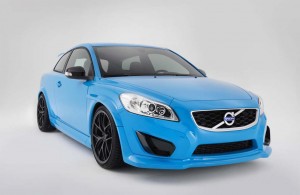
China has given approval to the purchase of Volvo from Ford by Geely, permitting the $1.7 bil deal to finally be completed.
With the approval of the Chinese government now in hand, it appears Ford Motor Co. and Geely Holding Group can consummate the sale of Swedish automaker Volvo.
The U.S. and Chinese firm agreed to the $1.7 billion deal in June but had to wait for government regulators in the U.S., Europe and China to give their approval before the transfer of Volvo could be completed. (See Li Shufu to Become Chairman of the Board at Volvo and Ford Takes Huge Loss on Volvo Sale to Chinese)
China’s Commerce Ministry gave what appears to be the final approval today, according to the Associated Press, which quoted an unnamed government official saying, “This was the final stage. There are no conditions attached.”
If so, the official transfer of Volvo could happen quickly, ending a decade-long effort by Ford to blend Volvo into its global product development process. The goal yielded mixed results, with Volvo providing some of the basic platforms and safety technology that will continue to be used by Ford in the years ahead. But the Swedish maker itself struggled under Ford’s stewardship and shortly after he joined the U.S. maker, four years ago, CEO Alan Mulally sent a rescue team to Volvo headquarters to try to turn things around – or set the company up for sale.
That was the strategy Ford ultimately turned to, Volvo following Aston Martin, Jaguar and Land Rover among European-based subsidiaries Ford decided to get rid of. At one point, they were all brought together as part of the maker’s Premier Automotive Group, which former CEO Jacques Nasser claimed would ultimately yield a third of Ford Motor Co.’s global profits.
But Mulally has turned the company inward, not only selling off the PAG brands, but sharply reducing Ford’s stake in Japan’s Mazda and eliminating the long-struggling Mercury marque. Going forward, Ford will concentrate on just two brands, its core Blue Oval Ford division, and Lincoln. The challenge will be to make Lincoln competitive with better-established global luxury nameplates like Mercedes-Benz and BMW.
For Geely, on the other hand, Volvo provides a golden opportunity to expand out of its relatively modest niche within the booming Chinese market. Though it has ties to various government entities, Geely is one of the domestic carmakers that hasn’t tied up with a foreign brand. But it still has global ambitions and hopes to take advantage of Volvo to expand into other markets.
Geely officials have repeatedly said that Volvo will operate with relative autonomy, though it remains to be seen how that will play out once the sale is complete. It is all but certain, Volvo officials have confirmed to TheDetroitBureau.com, that they will get additional production capacity in China, something that could help the marque do a better job of tapping China’s roaring economy and fast-growing auto market.
The closing of the sale would wrap up a tense period of transition for the Swedish auto industry. As 2010 began it appeared quite likely that Volvo’s cross-town competitor, Saab, would be shut down by its former owner, General Motors, after a proposed deal with the small, exotic carmaker Konigsegg collapsed. But an 11th-hour alternative proposed by the Dutch sports car company, Spyker, saved Saab, which is now ramping up production of the new 9-5 sedan.

Volvo has always been synonymous with quality and China with……………….